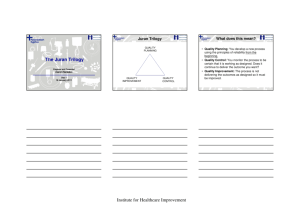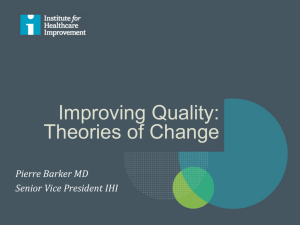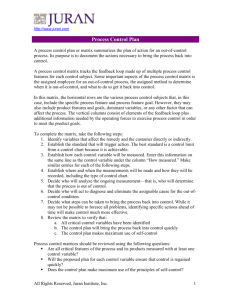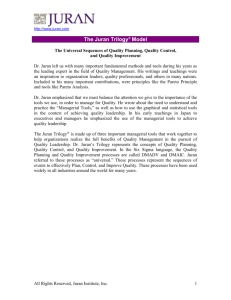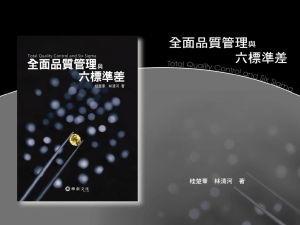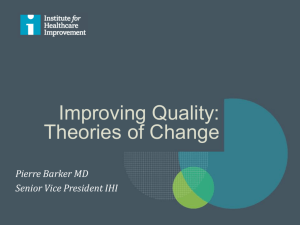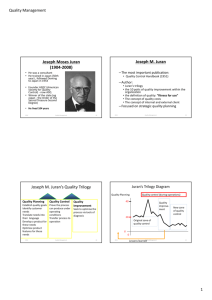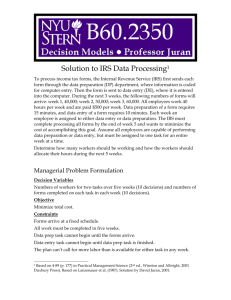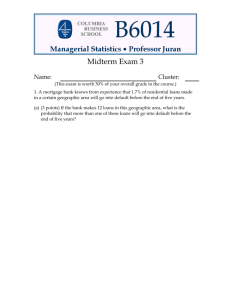Article on Juran - 3i Quality Consultants
advertisement
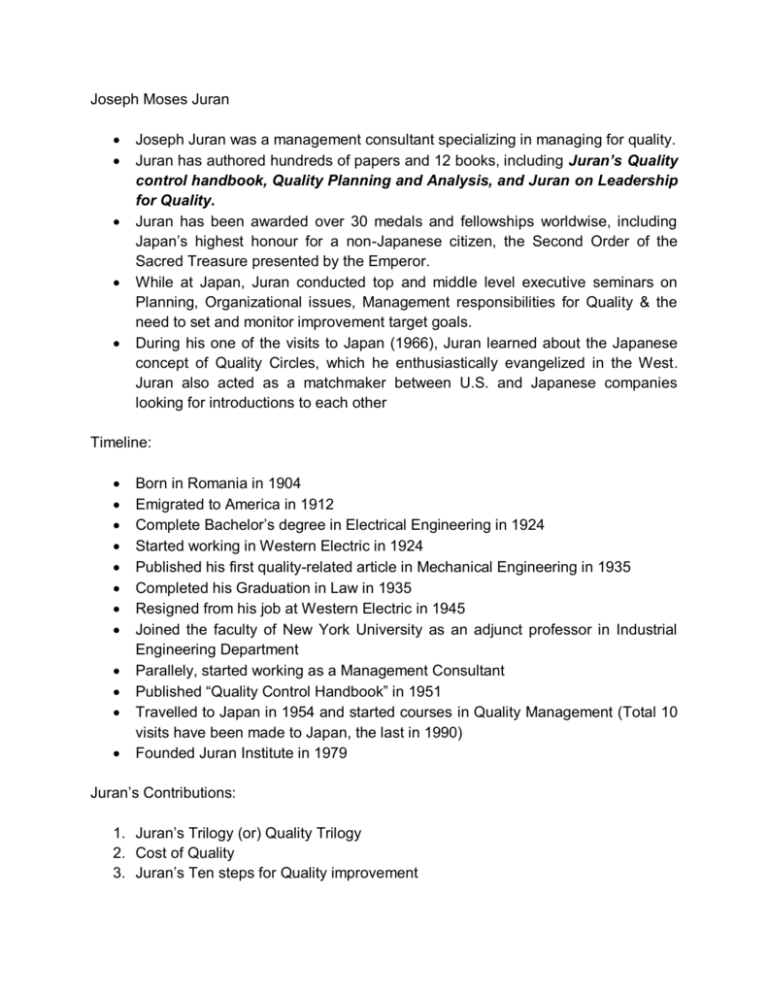
Joseph Moses Juran Joseph Juran was a management consultant specializing in managing for quality. Juran has authored hundreds of papers and 12 books, including Juran’s Quality control handbook, Quality Planning and Analysis, and Juran on Leadership for Quality. Juran has been awarded over 30 medals and fellowships worldwise, including Japan’s highest honour for a non-Japanese citizen, the Second Order of the Sacred Treasure presented by the Emperor. While at Japan, Juran conducted top and middle level executive seminars on Planning, Organizational issues, Management responsibilities for Quality & the need to set and monitor improvement target goals. During his one of the visits to Japan (1966), Juran learned about the Japanese concept of Quality Circles, which he enthusiastically evangelized in the West. Juran also acted as a matchmaker between U.S. and Japanese companies looking for introductions to each other Timeline: Born in Romania in 1904 Emigrated to America in 1912 Complete Bachelor’s degree in Electrical Engineering in 1924 Started working in Western Electric in 1924 Published his first quality-related article in Mechanical Engineering in 1935 Completed his Graduation in Law in 1935 Resigned from his job at Western Electric in 1945 Joined the faculty of New York University as an adjunct professor in Industrial Engineering Department Parallely, started working as a Management Consultant Published “Quality Control Handbook” in 1951 Travelled to Japan in 1954 and started courses in Quality Management (Total 10 visits have been made to Japan, the last in 1990) Founded Juran Institute in 1979 Juran’s Contributions: 1. Juran’s Trilogy (or) Quality Trilogy 2. Cost of Quality 3. Juran’s Ten steps for Quality improvement 1. Juran’s Trilogy: Juran’s Trilogy is an approach to cross functional management that is composed of three managerial processes: Quality planning, Quality control, and Quality improvement. Quality Planning: This is the activity of developing the products and processes required to meet customer’s needs. It involves a series of universal steps which can be abbreviated as follows: Establish quality goals Identify the customers Determine the customers’ needs Develop product features that respond to customers’ needs Develop processes that are able to produce those product features Establish process controls Prove process capability Quality Control: This process consists of the following steps: Choose control subjects Establish measurement Establish standards of performance Evaluate actual quality performance Compare actual performance to quality goals Act on the difference Quality Improvement: This process is the means of raising quality performance to unprecedented levels (“breakthrough”). The methodology consists of a series of universal steps: Establish the infrastructure needed to secure annual quality improvement. Identify the specific needs for improvement -the improvement projects For each project establish a project team with clear responsibility for bringing the project to a successful conclusion Provide the resource, motivation, and training needed by the team to: 1. Diagnose the cause 2. Stimulate establishment of remedies 3. Establish controls to hold the gains 2. Cost of Quality Juran maintained that the Cost of Quality, or not getting it right first time, should be recorded and analyzed and classified into failure costs, appraisal costs and prevention costs. Juran demonstrated the potential for increased profits that would result if the cost of poor quality could be reduced. Failure costs: Scrap, Rework, Corrective actions, Warranty claims, Customer complaints and Loss of custom Appraisal costs: Inspection, Compliance auditing and Investigations Prevention costs: Training, Preventive auditing and Process improvement implementation 3. Juran’s Ten steps for Quality Improvement Juran proposes 10 steps to quality improvement: Build awareness of the need and opportunity to improve Set goals for that improvement Create plans to reach the goals Provide training Conduct projects to solve problems Report on progress Give recognition for success Communicate results Keep score Maintain momentum Juran Institute: The Institute is an international training, certification, and consulting company which provides training and consulting services in quality management, Lean manufacturing management and business process management, as well as Six Sigma certification.
